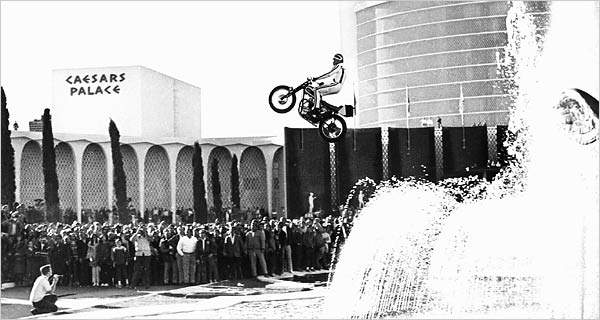Speaking of disreputable acts in Las Vegas, there’s the continued attempt to suburbanize that desert city. Fancy casino fountains don’t threaten its future–the lawns do. It’s enough to drive a person underground. From John M. Glionna in the Los Angeles Times:
“Officials say Las Vegas uses only 80% of its Colorado River allotment and is banking the rest for the future. But critics say that even if the city taps all of its entitled water, that amount would still not be enough to meet its needs in a prolonged drought. And after years of recession, building is starting to come back here, leaving many to ask: Where are all these new residents going to get their water?
‘How foolish can you be? It’s the same fatal error being repeated all over the Southwest — there is no new water,’ said Tim Barnett, a marine physicist at UC San Diego’s Scripps Institution of Oceanography and coauthor of two reports about dwindling Western water resources. His research concluded that without massive cutbacks in water use, Lake Mead had a 50% chance of deteriorating to ‘dead pool’ by 2036. That’s the level at which the reservoir’s surface drops beneath Las Vegas’ lowest water intake.
Yet casinos and developers continue to push growth, and critics say lawmakers often seem to lack the willpower to draw the line. ‘Will Las Vegas remain a boom town in the 21st century? The city wants to appear confident but it’s a place built on illusion and luck,’ said Emily Green, an environmental journalist who writes about water issues on her blog, Chance of Rain.
‘When it comes to water,’ she added, ‘those aren’t very good guiding principles.’
The real water hog is not people, many say, but grass: About 70% of Las Vegas water goes to lawns, public parks and golf courses. A rebate program has already ripped out 168 million square feet of grass, enough to lay an 18-inch-wide roll of sod about 85% of the way around the Earth.
But is Las Vegas ready to ban grass entirely? ‘Well, at that point you’re seriously impacting quality of life. We’re not being complacent. We’re just not ready for draconian cuts,’ said [J.C.] Davis, the spokesman for the water authority.”

